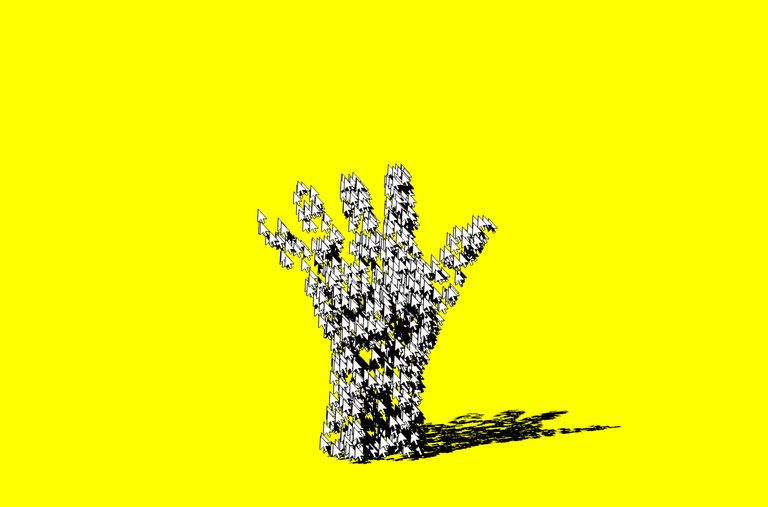It is a new form of firm, inspired by the introduction of Bitcoin, and one that claims to be neither a corporation nor a financial institution in the traditional sense.
According to the company’s declared business model, it has no owners, officials, or employees. The American CryptoFed, on the other hand, is a “decentralised autonomous organisation” that is meant to be guided by computer code and managed by a community of users who vote on ideas using cryptocurrency tokens.
According to their proponents, these types of ventures, known as decentralised autonomous organisations (DAOs), represent a new model for commerce that has the potential to democratise business enterprises while also breaking the stranglehold that Big Tech and other entrenched middlemen have on innovation in the information age. Already, a fast rising number of these startup businesses have arisen on the internet, including financial services operations, news centres, and social clubs, to name just a few examples.
Their critics come from a variety of perspectives, demonstrating both the disruptive potential of the cryptocurrency phenomena as well as the ongoing battle to demonstrate its practical use beyond financial speculation.
Members of decentralised autonomous organisations (DAOs) are at odds with one another on how to strike a balance between the necessity for qualified and experienced management and the utopian goal of collective decision-making. According to crypto investors and authorities, some of the businesses are nothing more than elaborate Ponzi schemes designed to accomplish little more than boost the value of the digital tokens they are selling.
In addition, authorities are taking action as a result of growing concern about how to safeguard investors in businesses that do not adhere to conventional business and accounting norms.
The Securities and Exchange Commission effectively shut down American CryptoFed DAO in November, just four months after it was established with the goal of establishing a cryptocurrency payments system. The SEC claimed that the enterprise was “materially misleading” the public by filing contradictory documents that failed to disclose key information such as audited financial statements.
In a statement, Hester M. Peirce, a commissioner on the Securities and Exchange Commission, described the rise in DAO activity as “a little overwhelming.”
Many decentralised autonomous organisations (DAOs) are dealing with a variety of issues, including massive financial losses caused by software vulnerabilities and cyberattacks, internal splits that threaten the future survival of certain entities, and charges of unlawful diversion of community assets. When it comes to voting on a strategy or business decision, other organisations have suffered with poor participation among members, essentially handing authority over to the investors who put up the money to help them get started.
This tumultuous development has sparked a discussion over whether these businesses are just vehicles to enrich insiders while exploiting customers, or if they are early trials in a new way of conducting business.
Individual cryptocurrency investors as well as some of the largest industry heavyweights, such as the Silicon Valley venture capital company Andreessen Horowitz, which has invested billions of dollars in blockchain projects, have welcomed the notion. And industry lobbyists and lawyers, including those from Andreessen Horowitz and American CryptoFed, are already on the ground in Washington and state capitals, advocating for the recognition of decentralised autonomous organisations (DAOs) and the updating of what they call “antiquated” legislation.
If a DAO looks to be in violation of securities regulations, federal authorities have no clear legal jurisdiction to regulate them for the time being. Ms. Peirce, a spokesperson for the Securities and Exchange Commission, said that the consequence was a recipe for uncertainty and ongoing conflict as authorities struggled to monitor the new corporations.
However, although DAOs may pick leadership groups and employ staff, the bulk of decision-making authority is supposedly given to the members, ensuring that decisions are made in a way that benefits the greatest number of participants.
Decentraland and DXDAO, according to Eyal Eithcowich, the creator of the monitoring website DeepDAO, are instances of DAOs that seem to be living up to the concept of decentralisation. Decentraland alone has hosted more than 1,000 separate referendums on themes ranging from “Should wearables with firearms be permitted?” to “Should wearables featuring guns be prohibited?”
In addition to individuals, major corporate entities are getting engaged, such as the JPMorgan Chase, which created a “outpost” in Decentraland, a “club,” to promote its Onyx payment network, which features a digital photo of the company’s top executive, Jamie Dimon.
However, this may also be a time-consuming and difficult task. Following a vote last summer, the DeFi Education Fund was formed and supported by the DAO for Uniswap, a decentralised crypto exchange. However the new organisation proceeded far more quickly than promised to sell millions of dollars’ worth of tokens, causing a backlash from the community.
Insiders with significant holdings, such as Uniswap backer Andreessen Horowitz, were instrumental in pushing the proposition, according to Chris Blec, the creator of DeFi Watch, a cryptocurrency news site dedicated to openness.
His explanation was simple: “Basically, they submitted and were approved for this thing that ended up being something like a legal slush fund for them.” This whole endeavour is geared to further their business interests,” says one source.
In response to worries about insider control, Miles Jennings, a lawyer at Andreessen Horowitz who is driving the company’s push for official government registration of DAOs, said the concerns were reasonable.

